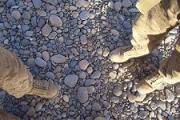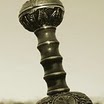
Originally Posted by
Jones_RE
Perhaps the best role for our unconventional forces in this conflict is advising and training ourconventional forces as well as the Iraqis.
We had a situation where soldiers and officers don't or didn't know the rules of this kind of fight, had no knowledge of local customs and little understanding of the kinds of missions they had to undertake.
I recall reading once about an army SOF team in Vietnam: 12 Americans leading and training some 600 local soldiers. By custom, an "A" detachment is headed by a full captain - a guy with enough rank and experience that a battalion commander would probably listen to him, especially when there was no other guidance as to what to do. The remaining sergeants could easily parcel themselves out to company and even platoon level and put the unit straight pretty quickly.
The counter argument to this integration is that we're wasting SOF's limited resources on a mission that the conventional guys should already have figured out. Also, SOF had missions considered extremely important at the time - nabbing high level regime figures and securing potential nuclear/chemical/biological materials.









Bookmarks